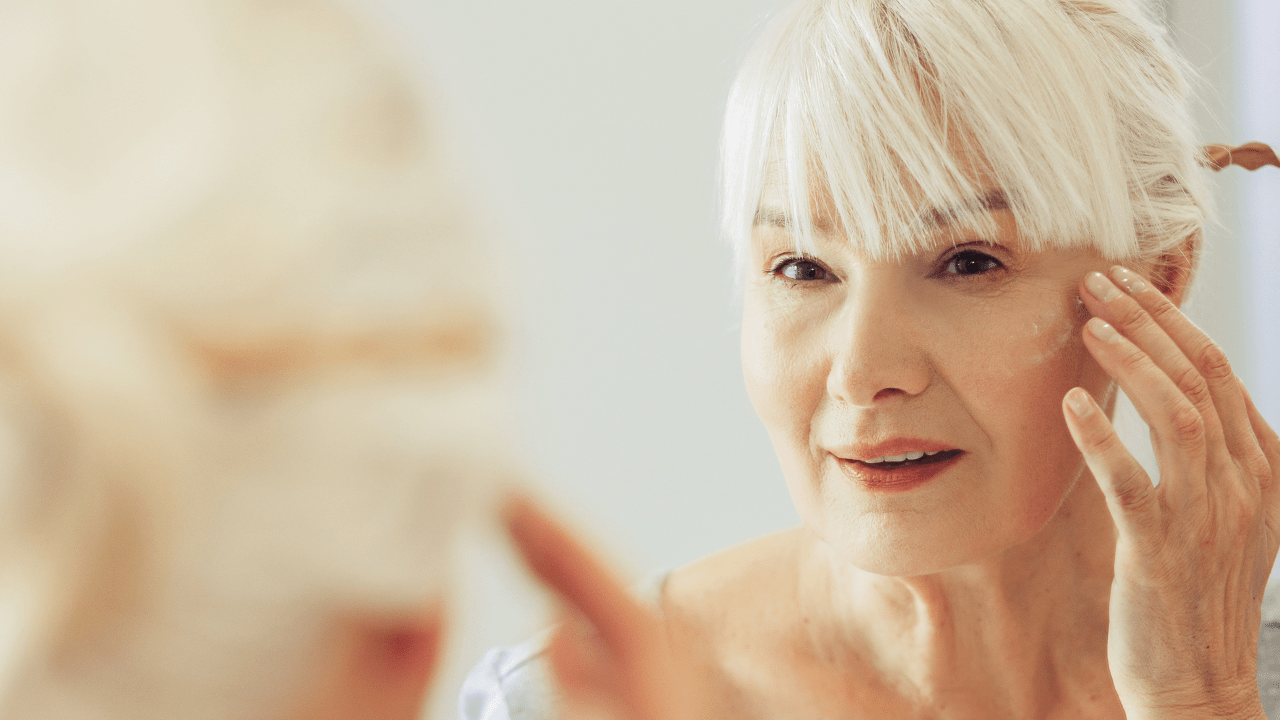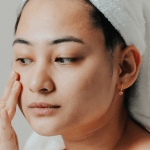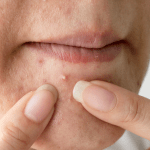Menopause doesn’t happen overnight and it’s an inevitable part of life for women.
In addition to hot flashes, fatigue, weight gain, and sometimes irritability and night sweats, skin changes are also common and may include increased hormonal acne, dryness, thinning, sagging of the skin and wrinkles.

Skin changes during menopause are very common. You may notice that before. And during this time, your skin feels dry and thin, and we may begin to see more wrinkles. Some people may experience acne during menopause as a result of hormonal fluctuations. When the production of hormones estrogen and progesterone rapidly drop off with menopause, most people see it in their skin. The skin may become dry or less plump. Hot flashes can also cause redness, and changing hormone levels may cause acne.
So why does your skin change during menopause? It may be frustrating to notice skin changing during menopause, but it’s very typical. Collagen is what gives skin plumpness and structure. The rapid loss of collagen can lead to fine lines and wrinkles or cause sagging in the cheeks.
Dry skin and acne are also common. Estrogen helps skin produce oil and hold in water, so extremely dry skin during menopause is common thanks to the drop in this hormone. Some people will also notice acne as estrogen levels fall away and androgen levels remain stable. Androgen levels are the male sex hormones like testosterone, and they increase even production and cause pores to become blocked.

So what can we do? You may not be able to prevent menopause from taking a toll on your skin, but you can certainly take steps at home to make sure your skin is looking its best. Because one of the main factors in skin aging is also sun exposure, it’s essential to wear an SPF daily, even when it’s cloudy, or cover up with a hat is what I like to do. Hydration is also important for menopausal skin. It’s likely that your face and body will feel drier than usual. And using a moisturizer may help draw moisture into the skin.
It’s best to use a moisturizer that’s 100% all natural, no chemicals and no water is added, because this will just contribute to the problem of dry skin. A moisturizer with rich emollient plant butters can help moisture from escaping and add even more hydration. In addition to skin care products, it’s also helpful to eat hydrating foods, drink plenty of water, and try to get quality sleep. So I hope you found these tips helpful. Please share with your friends, like, and subscribe to our videos.








